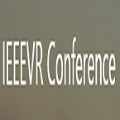To adapt to different environments, human circadian rhythms will be constantly adjusted as the environment changes, which follows the principle of survival of the fittest. According to this principle, objective factors (such as circadian rhythms, and light intensity) can be utilized to control time perception. The subjective judgment on the estimation of elapsed time is called time perception. In the physical world, factors that can affect time perception, represented by illumination, are called the Zeitgebers. In recent years, with the development of Virtual Reality (VR) technology, effective control of zeitgebers has become possible, which is difficult to achieve in the physical world. Based on previous studies, this paper deeply explores the actual performance in VR environment of four types of time zeitgebers (music, color, cognitive load, and concentration) that have been proven to have a certain impact on time perception in the physical world. It discusses the study of the measurement of the difference between human time perception and objective escaped time in the physical world.
翻译:为了适应不同的环境,随着环境的变化,人类环形节奏将不断调整,环境变化将遵循适者生存的原则。根据这一原则,客观因素(如环形节律和光强度)可以用来控制时间认知。对估计过时时间的主观判断称为时间认知。在物理世界中,以照明为代表的可能影响时间认知的因素被称为Zeitgebers。近年来,随着虚拟现实(VR)技术的发展,有效控制斑点已经成为可能,在物理世界中很难实现。根据以往的研究,本文深入探讨了四类时间斑点(音乐、颜色、认知负荷和集中)在VR环境中的实际表现,这些表现已证明对物理世界的时间认知有一定影响。它讨论了测量人类时间认知与客观逃避时间之间的差异的研究。



